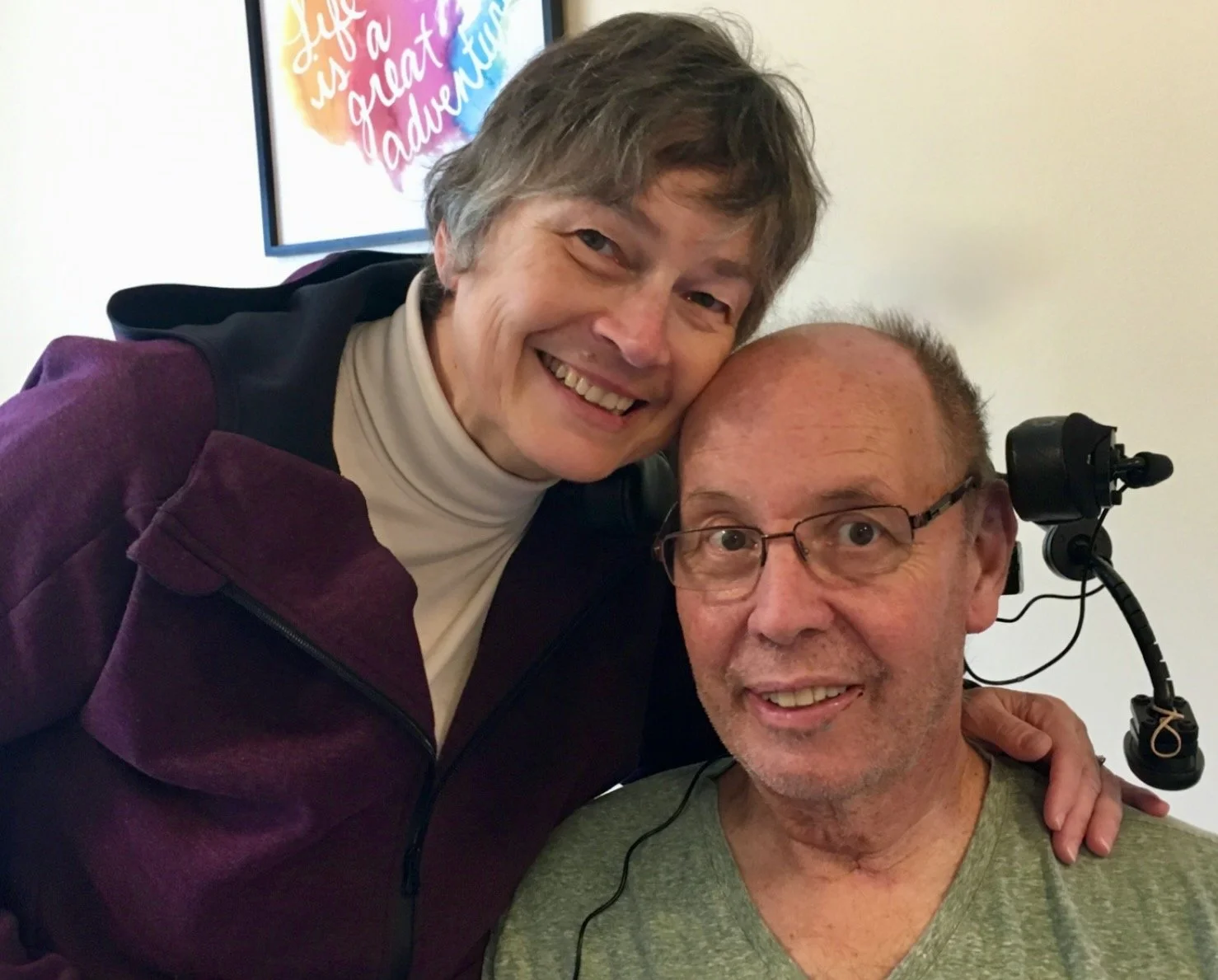Trauma: another word for the stress a caregiver experiences?
A friend asked me this spring, “Do you remember what Evelyn was like before she got sick?”
His voice and his face were full of emotion, and then so was mine when I quickly admitted, “No, I really don’t.”
I don’t remember the color of our daily lives. I can’t picture how she would be reacting, what she would be doing, or how we would be interacting today if she were still home and well.
Christmastime 2019, less than two weeks after her conclusive diagnosis. Although I may not have thought about it then, for some time I had been dealing with the effects of her compromised cognition.
I have been dealing with the effects of her compromised cognition for at least seven years—every day. I know she was an accomplished person: excellent in the kitchen, efficient and thorough in her housekeeping, caring for her students, diligent in her teaching, devoted to her kids, patient with me, committed to God. But for so long, I’ve stood by as her initiative has steadily been washed away. I have been in charge of her—quietly, with a watchful eye on the sidelines at first, and then up to my elbows with her care in the last year or two she was home.
And even now, not a day passes that I am not thinking about her care and condition and how I’ll provide for her wellbeing.
A new description?
I’ve written often in this space about the grief that results. Grief follows loss, and for the spouse of an Alzheimer’s patient, the losses are constant. A note from a friend and reader a few weeks ago, though, has led me to ponder a different word for this experience.
Is it accurate to portray the Alzheimer’s caregiving as trauma?
My friend Valerie Reed is a caregiver, but not for an Alzheimer’s patient. As she told in her Shared Story three years ago, her life was changed in an instant when she and her husband suffered an auto accident that left him paralyzed from the neck down. She wrote me again this summer to tell me what she had decided about her trauma. She shared the following at a website for caregivers and gave me permission to share it here:
I was out running errands while the aide was with my husband. (He is in a wheelchair and cannot be left alone.) In the car that day I listened to an interview with Michael McNamara, whose book is titled From Trauma to Joy. He was a Marine who experienced trauma in war. He said the best advice he received was from a Vietnam veteran who told him, "You know, you will never get over this trauma. No matter what type of trauma you have experienced, you will never get over it. The key is what you do or how you deal with it when it comes into your mind again."
You might think about it every day. (I certainly do, my husband, Dave, is sitting there, right in front of me.) I felt better just knowing there is nothing wrong with me. I thought I wasn’t normal because I wasn't getting over it. I do cry most days, and then I feel better. So I accept the crying and go on. (But I don't cry in front of my husband.) I meditate, pray, and try to be grateful.
I look for little things that give us joy. Coffee, homemade cookies, rides in the car, having visitors. I can't change what happened, but I can control my response to it.
A new perspective
I’m with Valerie. I can’t change our situation, but I can control my response to it. This blog has been filled with my descriptions of how I try. But I never thought about this coping as trauma, nor did I think long about the possibility that I’ll “never get over it.”
Psychologists reading this may weigh in about whether they agree. All input is welcome. Meanwhile I’ll take some solace in settling in with the proposition that this experience is changing me in ways I’ll feel forever.
Not all trauma happens in an instant. A childhood filled with abuse and neglect, a lifetime compromised by pervasive discrimination, a tour of duty lived at constant alert in a war zone: each of these is traumatic.
And one more. A marriage damaged by a chronic, incurable, progressively debilitating disease that turns one partner into a project for the other.
Maybe seeing that as trauma and not just loss will lead me to the tools for dealing with it.
First step
Like Valerie, I have not read McNamara’s book, but I took the first step, ordering it for my Kindle. And even a skim of its first pages tells me that McNamara does not believe trauma must inevitably damage a life forever. Change it perhaps, but not leave it a dysfunctional shell of itself.
I’ll read the book and share here any insights that help me look forward to a “post-traumatic” version of myself. I may never forget what it has meant to see the effects of Alzheimer’s and Parkinson’s on someone I love. But those memories need not compromise my joy or effectiveness in whatever years I have left.


